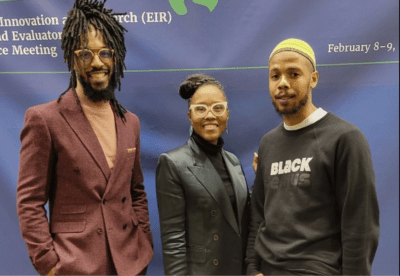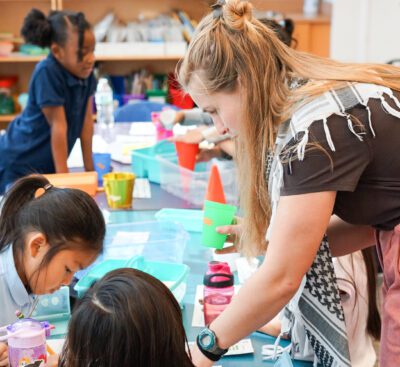
|
|
Did you know that it only takes one Black Parent to positively impact the instructional climate of over 2,000 students?
In 1740, the Negro Act was passed in South Carolina, prohibiting enslaved Africans from learning to write. Throughout the 1800s, we saw an increase in anti-literacy laws directly targeting the Black community — and specifically in North Carolina, banning the education of Black children. Individuals who were caught educating Black people faced legal punishment including fines and jail time.
By the beginning of the 20th century, the Plessy v. Ferguson case codified the existence of separate institutions, while requiring they should be equally resourced and maintained. After the realization that, although these institutions were separate, they were far from equal, the Supreme Court ordered the desegregation of schools.
But the Brown v. The Board of Education decision led to inequitable one-way integration, marginalization, and the virtual erasure of Black teachers and school leaders. White families did not want their children instructed by people from the Black community. For decades, white institutions either did not allow Black people to teach at their schools, or didn’t allow them to join their licensure programs, thus further contributing to the erasure of Black educators from the field. Implementation of this decision also created a wedge between Black parents and white educators. A wedge that continues into today’s political climate.
To date, white teachers still make up over 70% of the teacher demographic nationwide, although almost half of students come from communities of color.
Culturally affirming and liberatory learning environments
In a world struggling to heal and recover from a racial history that sought — and continues to seek — to dehumanize, marginalize, erase, and corrupt the legacies of Black people, I often find myself asking: “What next?” In a system where although culturally affirming instruction has been proven to showcase positive impacts for all learners, there’s still much organizing around banning culturally relevant pedagogy and other similar pedagogical frameworks. I no longer anticipate the harms, I instead envision what strategies are necessary for the collective liberation of oppressed peoples around the world.
I envision a future where all Black learners are instructed in a culturally affirming and liberatory learning environment — a CALE, if you will.
A CALE is a space of learning that fosters academic growth by nurturing the genius of Black students through the lens of Village of Wisdom’s Black Genius Framework.
This framework consists of a group of six terms that Black parents identified as essential to the healthy development of Black children’s intellectual curiosity and racial identity. Furthermore, the framework provides a conceptual grounding for what Village of Wisdom defines as a culturally affirming and liberatory learning environment (CALE). CALEs are created when Black learners are being supported in two or more of the element areas and threatened in none.
CALEs are spaces where Black learners have trusting relationships with their instructors. Spaces where their interests and dreams are integrated into the curricula and their cultures are used and positioned as motivational resources and tools of engagement. A CALE is not only racially affirming, but also highlights the intellectual contributions of the Black diaspora and leverages the students’ cultural knowledge and lived experiences to increase the efficacy of their learning.
A CALE prepares Black students to not only build healthy relationships with people who belong to diverse cultural backgrounds, but also equips them with a positive sense of self that removes the tendency to “shrink” and entertain stereotypical perceptions of self as they navigate a multitude of spaces that often reinforce and perpetuate harmful cultural norms foreign to their own. These types of learning environments eventually prepare Black learners to engage in social justice and the transformation of their communities.
A CALE inevitably liberates all learners, and educators for that matter, as they collectively decenter harmful instructional practices that center European narratives and accomplishments — despite the role African knowledge and sciences played in building and civilizing the European world. When a learning environment is more culturally affirming, students are seen to be more attentive, perform better academically, and their socio-emotional well-being is also enhanced.
Although my focus is centered on the Black community and those of the African Diaspora, most communities of color share a common history with colonialism and white oppression. Many communities of color have been taught to believe that their contributions to world history only became of value after their exposure and conformity to Eurocentric worldviews. This couldn’t be further from the truth.
Are we teaching children the truth, or are we teaching them to conform?
In the States, we’ve experienced centuries of inadequate “education” that prioritized conformity over critical thinking and preferred the maintenance of the status quo to real societal justice.
Black Parent Instructional Liberators
It’s time for real change, and Village of Wisdom offers just that. Imagine a future where Black parents and Black students are positioned as the experts and primary stakeholders in deciding how they desire to be educated and engaged. Imagine the impact of having a collective network of educators that receive direct guidance from Black parents who are trained in liberatory instructional modalities and mindfulness coaching.
I currently lead a team of Black Parent Instructional Liberators who are developing a hybrid online/in-person semester-long course that immerses educators in culturally affirming instructional strategies and relationship building practices geared towards improving their relationship with, and perception of, Black learners and their parents. These educators will join a team of five, including one administrative member, and embark upon a reflective journey to transform their instructional practices under the guidance of a team of Black Parents.
We are building a path to Instructional Liberation, one Black Parent at a time.
This work is nothing short of revolutionary.




